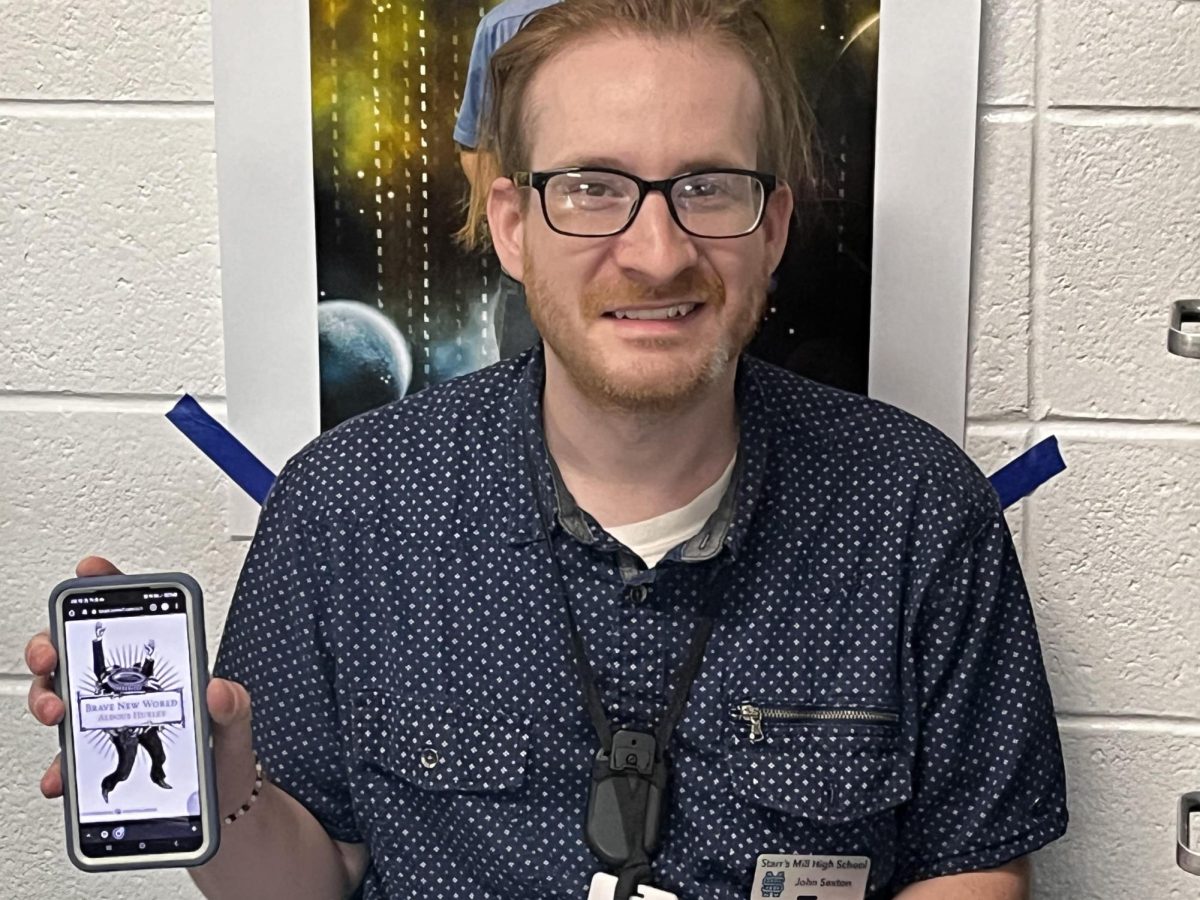Science teacher John Sexton recently read “Brave New World” by Aldous Huxley.
“It’s very dystopian, which I really enjoy,” Sexton said. “I think it also does a good job of asking us to reflect upon ourselves on what it is that we want or need on a day-to-day basis.”
The novel takes place in dystopian London, and questions the effects of living in a highly controlled advanced environment. In this world, human reproduction is tightly controlled and the civilians are genetically modified and trained from birth to adapt to specific roles and social classes. There are no emotions in this world, but in the book, we see how people challenge society.
“It’s one of those that I always go back to,” Sexton said. “It’s something that I already know the ending to, and for that reason it’s very nice to go back to and try to read it for more information.”
This novel was published in 1942. Author Aldous Huxley was inspired by another writer, H.G. Wells. Wells’ novels, which included themes of the possible future, made Huxley curious, and made him want to write his own take. He has written other books that also revolve around dystopian themes.
When asked if he would recommend this book to others, Sexton said, “Absolutely, not only is it very interesting to read, I think it has a message.”
Books similar to “Brave New World” include “Lord of the Flies” and “ The Doors of Perception.”
The overall theme of the novel serves as a warning about the dangers of a civilization that does not preserve the importance of human values and individuality.


